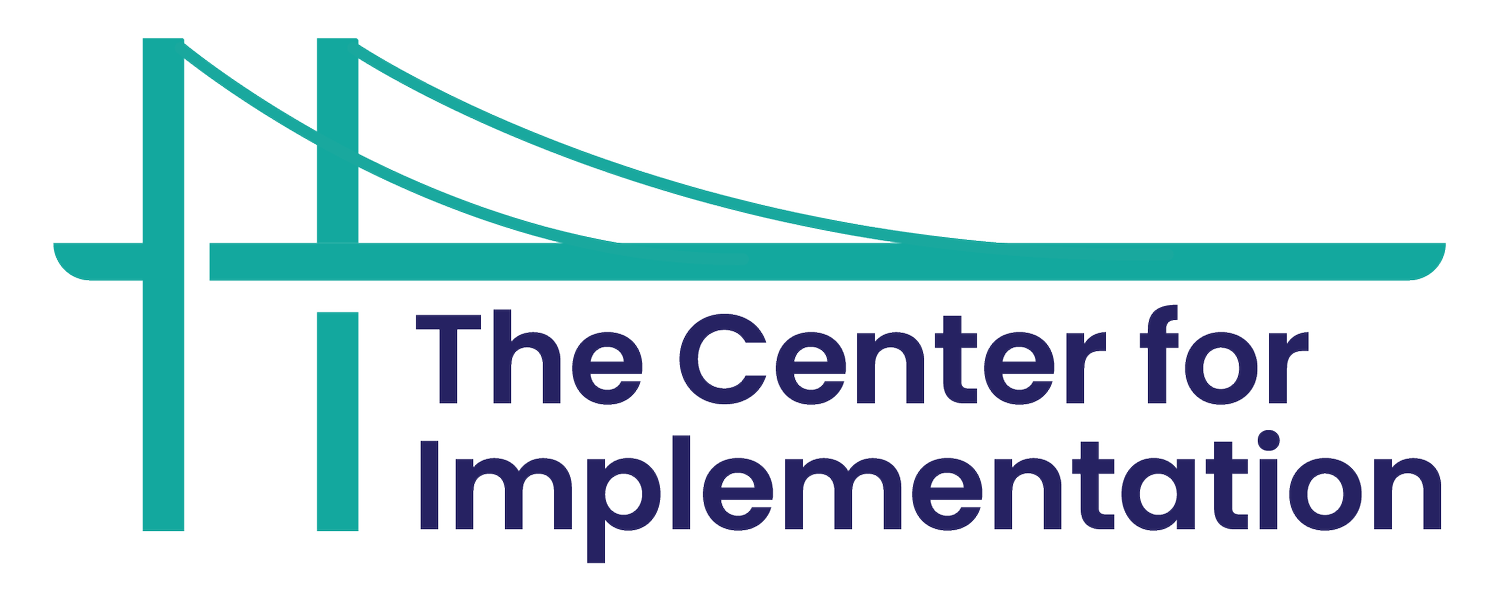Featured Resource: Implementation Support Practitioner Competencies
By Dr. Jonathan A. Caballero, Strategic Operations
6-min read
Regardless of whether you are a graduate student considering starting a career in implementation, a professional looking to transition to an implementation role, or looking to build implementation capacity at your organization to advance your mission, a great place to start is by having a clear understanding of what are the core competencies that set implementation support professionals up for success.
The Implementation Support Practitioner Competencies are a great place to start. Through two documents, the Implementation Support Practitioner Profile and, A Practice Guide to Supporting Implementation, you can easily get started in identifying the competencies that implementation support practitioners need to support effective implementation initiatives.
📝 A quick note - in 2018, TCI developed a set of core competencies inspired by and incorporating other implementation competencies that were available at the time. We are in the process of revising our competencies to reflect the current state of implementation support – look out for these later in 2023!
Both of these documents were produced through an international collaboration between some of our fellow implementation professionals – and some of them close colleagues – based at the National Implementation Research Network (NIRN), University of North Carolina, the European Implementation Collaborative and the Centre for Effective Services (Ireland). Having extensively reviewed the implementation science and practice competencies out there, we find these really resonate with us and other implementation support practitioners.
Implementation Support Practitioner Profile
While both documents can be read individually, if I were introducing these ideas for the first time, I would probably start by sharing the Implementation Support Practitioner Profile.
In under 20 pages, this document outlines guiding principles and core competencies to build the capacity of implementation professionals and organizations aiming to implement evidence-based initiatives.
It introduces guiding principles driving the success of activities of implementation professionals; examples include being empathetic, embracing cross-disciplinary approaches, and being a critical thinker.
Then it builds on this by introducing fifteen core competencies grouped into three domains: Co-Creation and Engagement, Ongoing Improvement, and Sustaining Change.
Lastly, to further clarify all of these concepts and provide a very concrete idea about how these competencies relate to the activities that implementation support practitioners perform day-to-day to produce impact and sustainable outcomes, each of those competence domains is further decomposed into components, each of which is illustrated with activities.
After reading it, a newcomer to those ideas can have a concrete idea of what is implementation support, what are the competencies that set up implementation support practitioners up for success, and clear examples of the activities associated with these competencies.
A Practice Guide to Supporting Implementation
If you are more interested in an in-depth treatment of the topic or would like to share a more detailed introduction with your colleagues, I would recommend A Practice Guide to Supporting Implementation.
In just under 50 pages, the practice guide provides a more detailed introduction to the principles, competencies, and activities mentioned above while also providing an introduction to other key concepts of interest for implementation support practitioners, education providers, funders, and organizations looking to develop their implementation support capacity.
As such, it provides more background about what implementation support is, the contexts where implementation support practitioners develop their activities, and even hints that can resonate with people working at different levels of the implementation system.
Where to go from here?
We invite you to take a deep look at these great resources about competencies and to explore the multiple references that they provide.
Having clarity on this can help you in multiple ways. For example, if you are an individual looking to break into an implementation support role, it can help you plan a path to do it, for example, by pursuing training opportunities that can help you develop these competencies and by identifying and strengthening the transferable competencies that you already have developed throughout your career.
If you oversee strengthening the capacity of your organization as a whole to provide high-quality implementation support, you can use this to determine your organizational strengths and gaps and use this to inform a plan on how to build the competencies of your team members to create an organization better positioned to support implementation.
And, of course, we are always here to help you achieve those goals. For example, you may want to check the recording of our free event on implementation careers, our implementation training courses (including our free mini-course Inspiring Change 2.0!), or take a look at the implementation support options that we offer to organizations.
This article was featured in our monthly Implementation in Action bulletin! Want to receive our next issue? Subscribe here.




